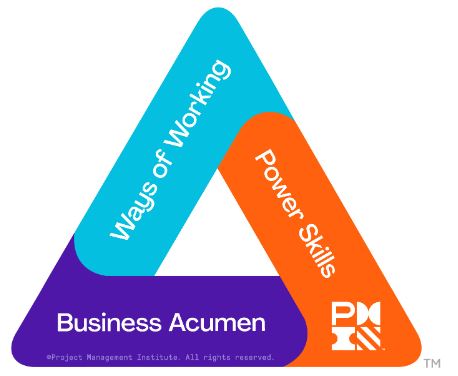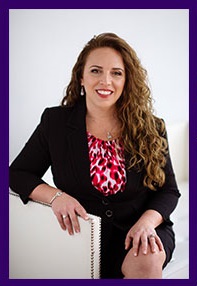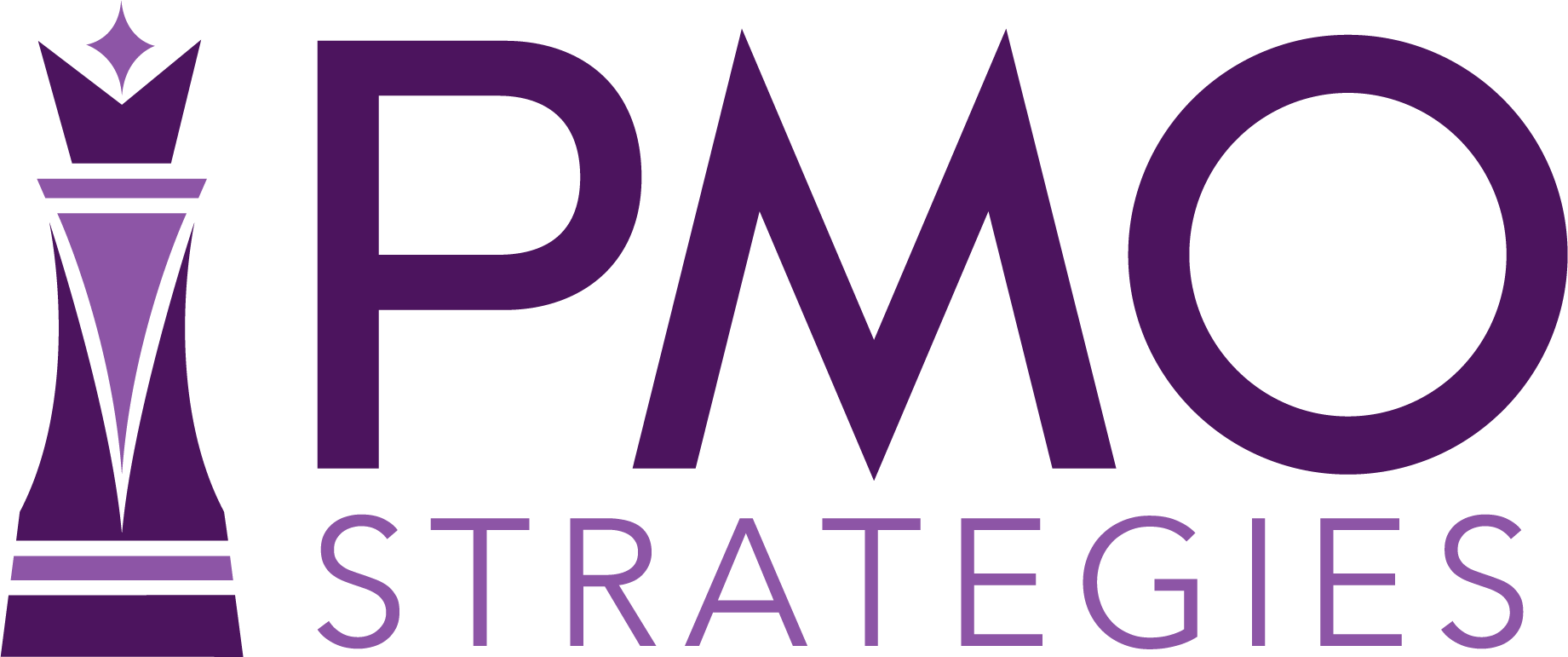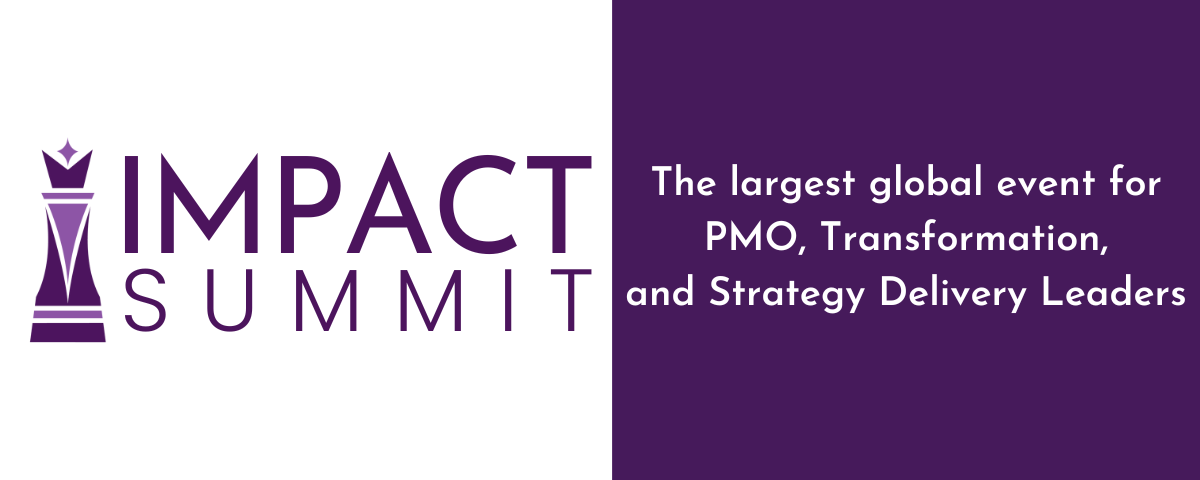
PMI Talent Triangle: Power Skills (Leadership)
Welcome to the PMO Strategies Podcast + Blog, where PMO leaders become IMPACT Drivers!
Today we are talking to Colin D. Ellis. Colin is an international award-winning project management speaker and author and helps organizations around the world to build delivery cultures that everyone actually wants to be a part of. Prior to building this phenomenal delivery cultures, Colin spent 30 years, as a permanent employee of other people’s delivery cultures in the UK, New Zealand, and Australia, and most of them were well not so great. Sound familiar? He’s written three best-selling project management books, including his latest one, The Project Book and speaks with energy, passion, humor and thank goodness, honesty. Remember what that was all about? About the challenges that organizations face in creating project leaders and the cultures required to deliver successfully every time. Born in Liverpool, UK, Colin now lives with his family in Melbourne, Australia, and what we’re going to talk about today I think is incredibly important.
Laura Barnard: Colin and I are going to talk today about EQ, emotional intelligence, and everything that goes with that. But from the perspective of you as a PMO leader and what you need to be thinking about, what EQ even means anyway and how it specifically applies to all of you that are in the role in driving change, helping to deliver organizational strategy and lead people with the PMO. Before we dive in, is there anything else you’d like to share with our audience today about you and all of your great experience?
Colin D. Ellis: Yeah, I think the only thing that I would add, Laura, is that I’ve been working for myself for four years, but for the 20 years before that, I really started from absolute zero like most project managers. I did not have a clue. I was walked out of a tele-sales environment in a newspaper in Liverpool where I lived in England, and really crafted a career based on being a good human being, creating great teams, but then staying on top of the technical knowledge that I needed as well. I associate with, project managers, program managers, PMO managers. I was a senior executive in governments. I understand all government challenges, and it’s just been a never ending moving kind of feast in the project management world at least for 20 years and no doubt that won’t end any time soon.
Laura: I like that. I like how you’re talking about it as just you just tried to be a good human being. And I think that, I remember back when I built my first PMO back in 1999 and I had no idea what I was doing. I was plopped down in the middle of the .com craziness, the Y2K craziness and trying to just figure out how in the world to help this organization I was working in deliver all of these client projects, and everything was new. You couldn’t just go to Google “how do I build a PMO?” and get 8 million results to about how to build a PMO. Google technically existed, but nobody really knew about it back in the late nineties and I didn’t have access to books, I didn’t have access to training. I didn’t have access to all the brilliant thought leaders that I do today. It was really hard to figure it out and learn from mistakes and try and figure out the right way to do it. I am really glad to hear that you have that experience because I think that when you have to figure it out on your own, there’s so much to be said for the way you actually internalize the lessons along the way.
Colin: That’s so true. I was the same, 56K modem in my bedroom using the net browser and kind of trying to come up with something when you just couldn’t get… I was going to the library but the resources really weren’t there. Really what we learned to do in those early days, Laura, and I’m not pining for the good old days, was being forced into a position where we had to work together to say, well what do we need to co-create? For us, particularly when I started as a project manager, we have four years to get a load of systems in place around the UK.
Laura: I consider you a thought leader in the leadership space specifically for project managers and PMO leaders. And you talk about emotional intelligence and as a matter of fact, you are a speaker at this year’s PMO Impact summit. I’m not going to let you give away all the secrets today, but I do want to share with the audience about emotional intelligence, what it really means and some takeaways and some things that we can think about with respect to how we lead. Because PMO leaders, you should be leading, right? So talk to me a little bit about what EQ even means anyway.
Colin: Well, the people with high EQ are the people that we look up to, Laura, these are the people that are in our lives and we say we want to be like them. I had a bunch of bosses like that. I was like, how do I get like that person, what traits do they have? EQ is the capacity to be aware of and in control of one’s emotions and to build relationships empathetically and judiciously. Which is a very long way of saying you’ve got to be a really good human being. You’ve got to listen, you’ve got to change your style based on the person that you’re talking to. You’ve got to find ways to inspire and motivate all of these people. It’s just the stuff that I talk about in the session. And by the way, who doesn’t sign up for a free Summit? Like seriously, it’s free. Just sign up immediately, just pause this podcast and go and sign up. If you haven’t already, have a word with yourself, what’re you doing?
Laura: By the way, I just want to say really quick that when we did this last year, people were blown away by the quality of the content and the fact that they had access to it for a lot longer than most summits, most summits will be two or three days or even one day and you just get access to it and that’s it. Our summit runs for two weeks straight. So you get a long time to watch sessions, and we have new sessions that come out every couple of days. The content is phenomenal. I am so excited to share all this with everyone. So yeah, it’s a no brainer. Definitely go signup. You can catch all of this content and hear the details of what Colin’s going to talk a little bit about today.
Colin: Yeah. And that’s another sign of emotionally intelligent people is we’re constantly looking at ways to better ourselves. I remember reading A Drive by Dan Pink, and he said, ask yourself, are you a little bit better than you were yesterday? And I love that, because what we’re not trying to do is to create dramatic change in our lives. This concept of emotional intelligence is we’re getting just a little bit better every single day. So emotional intelligence is a choice. It’s a skill that we can all learn. And the same applies to leadership. Leadership is not a development program. They’re the choices that you make to make a positive difference to people’s lives.
Laura: Exactly. You said something there that I want to really dig into for a second, which was changing your communication style depending on who you’re talking to, who you’re leading, the situation you’re leading in. And one of the things that I teach people around bringing change to organizations and when you’re building and running your PMO, you need to think about changing or adapting your management style and your management and leadership styles both, based on how familiar people are with the change. So if it’s something where you’re leading change and it’s the same kind of a project that you’ve done before and people are familiar with it and they’re in a familiar environment and the outcomes of this change are not going to rock their worlds completely, then you can lead in a different way than you need to lead if people are extremely unfamiliar or unsure or fearful about that change. Can you talk about that a little bit and from your perspective and the whole way that you communicate with people differently, having your EQ hat on?
Colin: Yeah, sure. So there’s two things there. Firstly is that from a personality perspective, we’re all ever so slightly different. So you look at Carl Jung’s work on theory of personality in the 20s and 30s and what he found is that we are thinking people or feeling people, we make our decision based on sensing and intuition and we respond to social situations through introversion and extroversion. So we’re a mix of all of these things. Fundamentally there are four traits. You know, you’re either an action person, so you like detail, you like methods, you like process, you like structure. You’re a people person, you like harmony, you like to understand the value of something, you want to make sure things are done for the right reason. You’re an action person, you like logic to make decisions and you just want to get stuff done, or you’re a social person, you’re kind of highly creative, you use storytelling and you’re great at facilitating it and speaking. We’re a mix of all of these things. And so what we forget, Laura, that when we deliver a message, you’re not just speaking to you because when we deliver a message, we deliver it in our default style.
I’m a high extrovert, so I’ve lots of stories, lots of energy, lots of positivity, lots of arm waving. Give me a set of whiteboard pens and I’m drawing all over boards and stuff, which is great for people like me. People like me are going to be like, “Oh my God, that was so awesome, it was inspirational. It was motivational.” Introverts are like, “yeah, no, no thanks.” They’ll put their headphones on, they’re blocking me out. It’s really about recognizing the person that you’re talking to and thinking, okay, well what kind of style do I have to adopt. As a professional project management speaker, I’ve got to deliver a speech that takes into consideration everybody’s style. The second thing then is crafted a message based on what you think your audience knows. Now I know when I’m speaking to project managers, to PMO managers, the level of the information that they have about the job is akin to someone with about 15 years of experience.
They generally know, even junior project managers have got about five to 10 years’ worth of knowledge, even if they haven’t been in the professional time. But often when, exactly as you say, when we’re selling change or when we’re trying to influence change, particularly in the technology space, we’ve got business people who still don’t know how to use an iPad, let alone how to use new functionality on SAP. So you’ve got to dumb the message right down. You’ve got to remove all acronyms, you’ve got to remove all those words and you’ve got to bring the conversation down to a level that they understand it and then deliver it in a way that their personality appreciates. And we are not taught to do any of this stuff. It’s a critical skill that all project managers or people really need and yet we’re never taught how to do it.
Laura: That is so important. And I’m curious as to your thoughts as to why we haven’t really focused on soft skills. And I know that there’s a lot of PMO leaders and I know even when I was in a PMO role, I sought out training, leadership and management development training both myself, and tried to get in every program I could when I was inside organizations to develop my leadership competencies, et cetera. But I had to be pretty aggressive and go after it in order to learn those things. Why do you think it’s not really a focus as much as making sure we have a PMP or making sure that we have some other certification or making sure we know how to use all the latest technology and tools. Why do you think we’re not focusing as much on those soft skills if they’re so critical?
Colin: Two reasons really, Laura, is firstly the organizations hiring the wrong way. So when we hire project managers, we’re like, “project management required, must be PMP certified, project management required, must have SharePoint experience.” Why? You’re not hiring a SharePoint SME. So that’s the first thing is what we’re looking for is a degree of technical knowledge. Now don’t get me wrong, right? I’m not saying you shouldn’t have that. You should have your PMP, and if you’re going to work in technology and you want to work on SharePoint projects, you should know, I would say kind of all of the detail of that. So you’ve got to have that. But that’s the first thing. We’re not hiring good human beings who know how to communicate and create great teams, that’s secondary, because of the second thing is we love our quick fixes, and we’ve worked them for the last 20 years and the standards group found this, is that what we’ve done as organizations around the world, and certainly in my research and certainly in the work that I’ve done is no one is exempt from this, and we’re doing exactly the same with agile.
What we’re saying now is, a great example is, what we need is faster value delivery to the customer, right? That’s what we’re saying as organizations. Now the way to get value quicker to the customer is to listen more, is to remove some of the bureaucracy, is to have a different mindset about the way that we’ve done things in the past and try one or two different things. Instead what we do is send everyone on Scrum course and then expect things to change overnight even though we never challenged the behaviors of the individuals who have held us back in the first place. Because let’s face it, the organizations that are successful today, they’re not doing agile. Google aren’t doing agile. Spotify aren’t going agile, Netflix aren’t going agile because they built cultures that continually improve without the need for quick fixes. And so I think that the sooner that organizations get over themselves and realize that actually just implementing the latest method du jour, isn’t the answer. An investment in soft skills and team building skills is, that’s when we’ll start to see the improvement in projects.
Laura: Oh my gosh, I’m so glad you talked about that. For some people, I think we need to say that again and I personally think that agile implementation methodology and a lot of those mindsets that come in the agile manifesto and even implementing Scrum and that kind of thing, all of that is fantastic. However, you don’t need to be the latest methodology du jour in order to drive effective change, deliver on your organization’s strategy. It’s not about the templates, the tools, the process, the methodology you choose. It’s about people. And I think that’s so important. I want to just keep saying that. Hey everyone, it’s about the people. It’s about leading the change. It’s about being the change. It’s about being a part of the change. It’s about knowing how to engage with your stakeholders and your sponsor and your team members. That’s what makes stuff happen.
Colin: That’s so true. I do this thing called a Project Leadership Academy and it’s basically a weeks intensive program for project managers, program managers and sponsors. Right? Because sponsors still don’t get it. There’s an assumption that as soon as you’re a senior manager, you know how to be a sponsor, right? In this course, I broke down every single aspect of what it takes to lead, Laura. So you know, how to be humble, how to be yourself, how to understand your own values, how to give yourself a break, how to change your communication style, how to make sure there’s a bit of fun, a bit of humor, how to act like an entrepreneur. All of this stuff, right? Then I did the same for teamwork, for how to create different teams. I say that the number one job of a project manager is to motivate and inspire a group of people to do great work. There isn’t a method on planet that does that.
Laura: Wow.
Colin: We need the methods, but it’s all of the other stuff you need to inspire and motivate me. You know, some people feel a sense of satisfaction when they know they’ve got a process to follow. Those are those detail people, but still you have to light a fire inside them to say, this is what we’re working on. This is what we’re aiming for. You’re going to be a part of it. It’s going to be a big success. Let’s go. And people are like, yeah, come on!
Laura: Yeah, so let’s talk about that a little bit because I think we’re onto something here, but I can almost hear those that are listening. I love my PMO audience. I call them IMPACT drivers because if they’ve gone through a lot of the earlier podcasts episodes, they’re shifting their mindsets to become more PMO leaders and making a big impact with the PMO. But I know that some of them might be thinking, yeah, but. I have this little term I refer to as the, ‘yeah, but’ monster and that little monster is sitting there in the back of your mind every once in a while, especially if you’re tired, especially if you’re frustrated, especially if you feel like you’re in a change resistant culture, especially all those things.
And by the way, if you are feeling any of those things, definitely listen to Beth Genly’s recording as a part of the Summit about burnout because it’s a really important topic. And she talks about some really great things to do to kind of recognize burnout and get out of it. Anyway, but a lot of those people listening could be in one of those positions where they are tired, they are frustrated, they feel like they’re leading and yet nobody’s following. So how can PMO leaders listening today think about just how do you inspire people, right? I know that an important part is you gotta feel it yourself, but what do they do? Like what are the top three things that you could say, okay, here’s how you inspire people because it feels like, and again, I don’t want them checking boxes, right? They’ve got to feel it first. But what can you do to kind of shift that mindset, especially if you’re feeling a little frustrated in your current role?
Colin: So three things. The first thing is you’ve got to be great at your job. Yeah, you do. Because people feel safe. People feel motivated if they know that you know what you’re doing. And there’s too much average in the project management world. Honestly, being brutally honest, and I like to joke about it on stage all the time, but I’m deadly serious when I say that we’ve tolerated too many poor project managers and too many poor project sponsors for too long. So I think if you can be really, really good at your job, understand all of the facets of the kind of person you need to be, all of your technical skills, people feel motivated by that.
From an inspirational perspective, certainly from a PMO, you’ve got to understand the strategic endeavors and talk about the support that you bring and the support that you provide with energy and passion. Because if you can’t talk energetically and passionately about the work that you’re doing, no one will ever, ever feel it. I had a question at a conference not so long ago, Laura, and someone said, “Oh, but what happens if you’re not confident?” I was like, you’ve got to practice until you are confident. It’s never going to feel natural, because your DNA doesn’t want to do it, right? In the same way that my DNA doesn’t want to read a financial report, but you’ve got to do it enough times to be really, really good at it so that people feel the passion. The third thing is when you’re delivering that message, make sure as I mentioned before, you change your style based on the audience that you’re talking to so that the message immediately resonates and you gain this thing called buy-in.
Laura: Oh my gosh, there’s so much goodness in there. So on the confidence thing, I think I’ll share a quick story about that for me because I am an, what is it, an extroverted introvert? I think. I like my quiet time. I need my downtime. I need my time to time to think, I need to process things. But frankly, my career as a PMO leader, I wasn’t getting what I wanted to go in my career by kind of doubling down on my introvertedness, right? So I started forcing myself to be more extroverted, at least in the situations where I needed to be. Now for those that are true introverts, extroverting all day can be exhausting, but you learn to manage that, to get sleep and nutrition and all of that, exercise. But I found that to build that confidence, it really was, some of it was fake it till you make it right. We’ve heard that before. Some of it was, if I don’t feel confident, but I am acting confident and others believe in me because I’m showing confidence, then that will kind of be a self perpetuating positive cycle of, kind of they believe in me.
Okay, do I know what I’m doing? Okay, I really do. Okay, we’ve got this. Another way that I did this actually, I used to be terrified of public speaking. Now this was a big one. Terrified. Now I speak, I do keynotes all over the place. I speak all the time. I have a podcast, I’ve all the things. I’ve been through some pretty hefty professional speaking programs. And I love it now. It’s exhilarating. I still get a little anxious because I want to make sure that I’m serving the audience well, but when I first started, I was terrified. I was speaking on a panel, this is years ago now when I was still an employee, but I was asked to speak on a panel for the PMI chapter I was sitting on the board for, and I was so terrified that I made one of my dear friends, Mike Hannon, who’s also a big part of the summit, rehearse with me and practice answering questions that I might be asked. And all of that was because I didn’t actually, I don’t know, I kind of had a little of this impostor syndrome. Do I really know what I’m talking about? All of that.
Colin: That’s right. And so much of what we’ve learned within project management doesn’t focus on that stuff, Laura, almost to come full circle. The emphasis is all on the technical, technical, technical. So by breaking down those soft skills and showing people, here’s a bunch of stuff that you’ve got to do, what you can almost do through the book is go mark down, well, I’ve got a practice that I’ve got to do that. I’ve got, humility, I don’t do that, I’ve got a friend who’s not really good at saying sorry, and you know, I prompt him every now and again. By focusing on that, we really give people those insights on how to inspire and motivate and just feel that little bit challenged to be a little better every day.
Laura: Yeah. That’s so great. So I think something important you said about you help others feel safe and motivated, and I really like that safety thing because when people feel like they can trust you, then they’re willing to let their guard down enough to get beyond their own barriers and start participating and coming with you through the change. And so that core of Maslow’s Hierarchy of Needs really matters. That feeling of safety and security because you can’t go past that. You can’t evolve past that. You can’t get to the outcomes unless you’ve got that core sense of feeling safe. So I really am glad you brought that up. It was so important.
Colin: That’s something that we didn’t do very well in the past, the psychological safety, it was just an add-on. And yet we know that we do our best work when we feel safe. We know that when you can create the kind of environment where people can share and it’s okay to fail and there’s no blame throwing, then you’re going to be able to do your best work time and time again.
Laura: There’s something you said about sponsors and we just assume that they know how to do this role, and I think that’s a really important one. I actually created a course that’s inside my membership called ‘how to train your sponsor’ and I wrote a couple of articles about it because, and I definitely will be doing some podcast episodes on it because that was one thing that I found that was really interesting to me when I was leading PMOs and I’d go in, lot of times I was doing rescue work and that kind of thing. And often what I found is that the sponsors were just kind of put into a role, just like some of the program and project managers, sometimes, poof, your project manager. They were put into the role of sponsor, poof, you’re a sponsor. And nobody really took the time to say, and here’s what that means.
Colin: Yeah, that’s right. In the second half of the book, Laura, I talk about the three things that sponsors have to do, which is stewardship to make sure that they steer the ship in the right direction. I mean they’re accountable, not responsible. It’s about them being a role model for what the change is.
Laura: That’s a really important thing I think that audience needs to remember is that… We see it from our perspective, I remember being a PMO leader and a project manager and saying, man, I can’t get on my sponsor’s calendar and they’re too busy. Put yourself in their shoes for a minute. Imagine they’ve got a full time job doing whatever it is, running whatever business unit they’re running and the team of people they’re supposed to be managing and leading. And then on top of that, on top of their already packed schedule, they’ve got all of these additional responsibilities to help lead and shepherd projects through to completion and deliver on organizational strategy in the role of sponsor. And that’s a lot, especially if they don’t understand their role. And when push comes to shove, they might say, well, if I don’t keep the engines running, so I better focus on that. You know, that’s where my energy needs to go because if I don’t do that, I don’t have a job. And so then they don’t really understand their role as sponsor or how to engage or how important it is that they let that go to the wayside. And then, that’s where a lot of these problems happen. And from our perspective, we don’t even think about the fact that gee, they’ve already had 12 meetings today, they’re exhausted.
Colin: But then they also, they also don’t do themselves any favors by just not getting involved or just not telling you some of the pressures we’re under either. But you’re absolutely right. Yeah.
Laura: Right. As we kind of wrap up all of this, I think that that we’ve, we’ve given folks some good ideas and things to think about. Some perspective. I’m always about shifting the mindset a little bit every day. Think a little bit differently today about how you can lead people through change and the role of PMO leaders to be impact drivers and organizations. The one thing that I think is important for us to talk a bit about is expectations management for ourselves. One thing that I know that you say is, are you a little bit better today than yesterday? I think that’s what it’s all about is kind of that evolution as opposed to revolution. It’s an evolving process. But what advice would you have for PMO leaders listening today about managing expectations for themselves and going on this journey of being more of an emotionally intelligent leader.
Colin: I think it’s not to try and change too much too soon. That’s where burnout lives, I’m definitely going to listen to the burnout session myself, because often for me, I’m just like everybody else. I know that I’m burnt out when I’m burnt out and that’s late, cause I’m already burnt out. I want to avoid that. and so it’s recognizing that becoming a really good human being takes time and effort. It has nothing to do with age. Your emotional intelligence as Daniel Goldman found, your emotional intelligence never stops developing, never stops evolving, but you’ve got to want to do it. I like micro learning personally. I like reading blogs, reading books, making notes, challenging my biases, challenging the way that I act and just try and finding different ways to be a better human being, but your own expectation is… Don’t be like, this time next year I want to be the best human being in the world. Just work towards being a little bit better every day. As Dan Pink said, just be a little bit better every day. Take on some feedback and be relentless in your thirst for knowledge and learning.
Laura: Oh, that’s so fantastic. Yes, and speaking of thirst and learning and knowledge, make sure that you check out Colin’s session as a part of the PMO Impact Summit. I want to thank you so much for your time today and for sharing with our audience, and as I mentioned, folks, if you ever get the chance to see Colin speak, definitely grab a front row seat, it is definitely a fantastic show and thank you so much Colin for being part of our impact driver community and sharing with our audience today.
Colin: My pleasure, Laura. Thanks for having me on.
T hanks for taking the time to check out the podcast!
hanks for taking the time to check out the podcast!
I welcome your feedback and insights!
I’d love to know what you think and if you love it, please leave a rating and review in your favorite podcast player. Please leave a comment below to share your thoughts. See you online!
Warmly,
Laura Barnard








